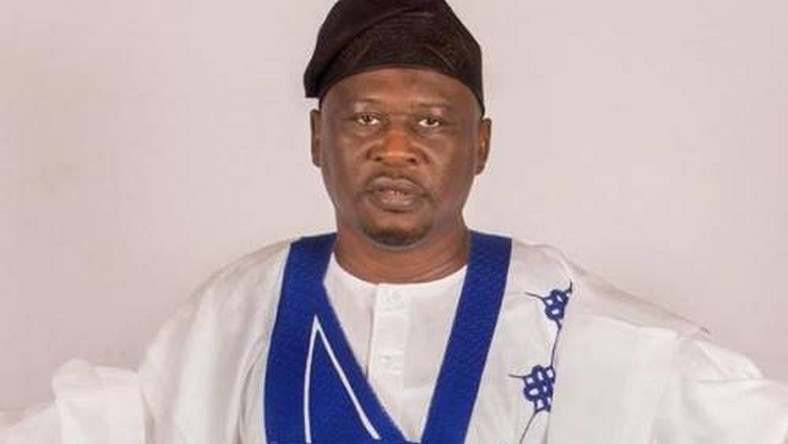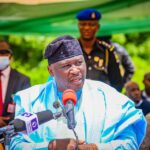The Adamawa State Government has resolved to go to the Capital Market and raise N100 billion through the issuance of Bond to finance, among other things, agriculture value chain, a component of its recently formulated Agribusiness policy. The Agribusiness policy, when implemented, is expected to raise the state’s Internally Generated Revenue (IGR) by a whopping N180 billion over a period of 10 years and provide hundreds of thousands of job opportunities.
The Ahmadu Umaru Fintiri-led administration has taken into cognisance the agrarian nature of the state and its current economic status. The state is also at the moment indebted to commercial banks and others to the tune of N152,495,239.66. The state owes various institutions like commercial banks, AMCON, contractors, pensioners, external debtors and others. These debts were allowed to accumulate over a period by successive administrations, which were forced to borrow at times to even pay salaries. The financial and fiscal status of the state cannot be sustained if it continues on the path of short-term borrowings with high commercial interest rates just to keep the state going.
- How IPOB members burnt our 2 palm oil trucks worth N80m – Kano traders
- Attacks on police formations, recipe for anarchy – Oluwo
In 2019, the state had to borrow about N26 billion to finance some of its capital projects and even recurrent expenditure. Debt service for that year also consumed N19 billion from a total receipt of N67 billion with a recurrent expenditure of N53 billion. I don’t know how such a debt burden and a recurrent encumbrance can be sustained by a state that relies on the allocations from the Federation account for its operations. This may be the reason the state government decided to go for the Bond which is of longer term with the cost of borrowing coming down by up to 40 percent. The difference in the cost of borrowing is enough to fund other developmental activities in the state without recourse to another bout of borrowing.
No sooner had the government announced its intention of going to the Capital Market than the critics activated their chorus mode to denounce a product that most don’t even understand its implications to the state. Most of us may not know the difference between monies raised through Bonds and monies obtained through commercial Banks at commercial interest rates. I am no finance person, so I don’t know much about these things. But the push by the state government to go down this road piqued my interest in trying to find out the pros and cons of this product and the reason behind such an audacious move in a season of dwindling resources. The little I learnt is what informed this piece.
The N100 billion to be raised in the Capital Market is spread over a period of four years. This means the state will access N25 billion every year for the next four years. Now if we look at the debt profile of the state from the year 2016 – 2020, the state has been borrowing N25 billion every year to finance its recurrent and capital budgets. Worse, these borrowings are done at commercial rates, which everybody knows are far higher than the Capital Market rates. Now, while all the past borrowings were done to pay for recurrent expenses, the money to be raised from the Capital Market is tied to specific projects that are designed to add value to the economy of the state and also make available monies that are now diverted to service existing debts for other developmental projects and programmes. I also learnt that with the accessing of the first tranche of N25 billion this year, the state will be able to pay off N12.7 billion owed to Fidelity Bank. This will still leave the state with about N12.3 billion for the reminder of the year for investment in the development of infrastructures in the agricultural sector. This will also free up some money for investment in the social sector.
I also learnt that the state has already captured the sum of N20 billion in its 2021 Appropriation Law as the sum to borrow for it to stay afloat. So, paying off Fidelity Bank the sum of N12.7 billion will effectively mean that the state’s borrowing profile will be about N12.3 billion net, far less than the N20 billion captured in the 2021 Appropriation Law.
While past borrowings were done to fund the recurrent component of the budget, the monies to be raised by the issuance of the Bond are tied to specific projects like infrastructural development which may attract private investors to the state. This will also broaden the state’s IGR base by focusing on long-neglected informal economic sector, deepening the state’s revenue base by a more formal collection from identified transactions and leveraging the enormous agricultural potentialities of the state that has always received only lip service in the past by fixing the argic value chains disregarded by past administrations. It will also serve as a vehicle of formalising and incentivising the vast agric-based financial transactions and attract more investment in production, aggregation and processing by private sector plyers.
The COVID-19 pandemic has exposed the underbelly of oil-exporting countries and, therefore, the need for diversification becomes much more important to survive. Nigeria, with a monocultural foreign exchange earner – crude oil – is affected by the worldwide closure of factories and industries. The demand for oil drastically fell to record lows, which in turn negatively affected the country’s income. Most states in the country may not be able to pay salaries without the monthly allocation from the Federation account – more so states in the North. States like Adamawa, which are agrarian in nature and well endowed by nature with arable land and water bodies, must fix their agricultural production to survive the nation’s economic downturn.
Also, recent political rumblings should be a pointer to what lies ahead. With the clamour of resource control making way for outright secession by some sections of the country, the time is nigh for any serious government to look at available alternatives to the parasitic reliance on the Federation account with all its attendant insults.
Babayola M. Toungo can be reached via [email protected]

 Join Daily Trust WhatsApp Community For Quick Access To News and Happenings Around You.
Join Daily Trust WhatsApp Community For Quick Access To News and Happenings Around You.

